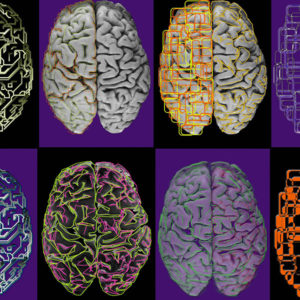Molecular Neurodegeneration and Therapeutic Approaches
22–26 January 2024
Wellcome Genome Campus, UK
Summary
(This course will be run again 23-27 June 2025)
This popular course will provide an overview of the clinical hallmarks and molecular basis of neurodegenerative disorders. It will highlight the mechanisms behind therapeutic approaches for combating Huntington’s disease, Parkinson’s disease, amyotrophic lateral sclerosis (ALS), frontotemporal dementia (FTD) and Alzheimer’s disease. Discussions will also cover bioinformatics techniques used in neurogenetics, and experimental neurodegenerative disease models.
This discussion-based course will be in-person, with some additional live-streamed lectures. The programme will include live Q&A sessions, participant poster presentations and plenty of face-to-face networking opportunities with the course cohort and experts in the field.
Aimed at individuals working in neurodegenerative research, neurogenetics or translational neuroscience. We encourage applications from PhD students, clinical scientists, veterinary scientists, post-doctoral researchers and researchers based in the pharmaceutical and biotechnology industries.
Learning outcomes
Following attendance of this course, you will be able to:
- Explain the general mechanisms involved in various neurodegenerative disorders.
- Recognise the value of applying various genetic and genomic approaches to neurodegenerative diseases.
- Understand the disease pathogenesis of Huntington’s disease and identify targets for therapeutic development.
- Describe the heterogeneity in clinical symptoms and pathological hallmarks of the major neurodegenerative diseases.
- Understand the ALS-FTD disease spectrum and describe key genetic components of the disease.
- Differentiate different forms of Parkinson’s disease and recognise challenges involved in new developing treatments.
- Describe the role that amyloids play in Alzheimer’s disease and understand future therapeutic perspectives.
- Appraise human stem cells and brain organoids as models of neurodegeneration.
- Evaluate the current and potential translational and therapeutic approaches to degenerative disease.
- Explain the mechanism of Tau in Alzheimer’s disease, and understand how models can be used to evaluate protein assembly in neurodegeneration.
- Connect with researchers working on various aspects of neurodegeneration and formulate ways to develop your own work.
Programme
This residential course will run from 12:00 on Monday, 22 January and will close at approximately 13:00 Friday, 26 January 2024.
Topics will include:
- Genomic analysis in neurodegenerative disease
- Clinical and pathological aspects of neurodegeneration
- Therapeutic strategies for Huntington’s disease
- Disease spectrum of ALS-FTD
- Mechanisms of Parkinson’s Disease and novel treatments
- Alzheimer’s disease: amyloids, Tau dementia and therapeutics
- Human cellular models for neurodegenerative disease
- Translational and therapeutic approaches
Committee and speakers
Scientific Programme Committee
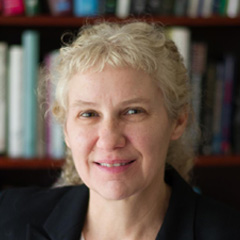
Nancy Bonini
University of Pennsylvania, USA
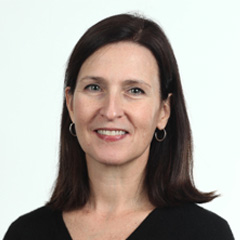
Karen Duff
UK Dementia Research Institute, UK
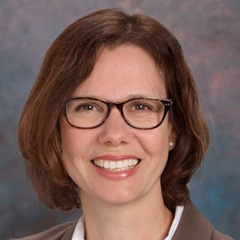
Rita Sattler
Barrow Neurological Institute, USA
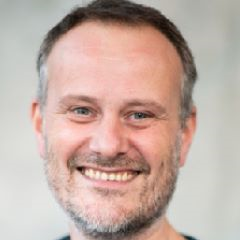
Patrik Verstreken
VIB-KU Leuven Center, Belgium
Keynote Speaker
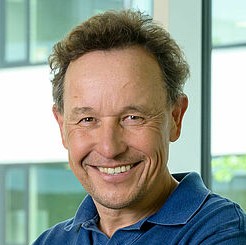
Christian Haass
Ludwig-Maximilians University Munich, Germany
Course Speakers
Gillian Bates – UK Dementia Research Institute, UK
Caroline Benn – LoQus23 Therapeutics Ltd, UK
Nancy Bonini – University of Pennsylvnia, USA
Karen Duff – UK Dementia Research Institute, UK
Alexandra Durr – Pitie-Salpetriere University Hospital, France
Frances Edwards – University College London, UK
Rosa Rademakers – VIB-UA Antwerp, Belgium
Benjamin Ryskeldi-Falcon – MRC Laboratory of Molecular Biology, UK
Pamela Shaw – University of Sheffield, UK
Patrik Verstreken – VIB-KU Leuven, Belgium
Selina Wray – University College London, UK
Additional Live-Streamed Session Speakers
Frank Bennett – Ionis, USA
Warren Hirst – Biogen, USA
Lorenza Magno – University College London, UK
Vilas Menon – Columbia University, USA
Melissa E. Murray – Mayo Clinic, USA
Rita Sattler – Barrow Neurological Institute, USA
Hongjun Song – University of Pennsylvania, USA
Organisers – Wellcome Connecting Science
Lucy Criddle and Scarlett Storr – Event organisers
Jane Murphy – Programme Developer
How to apply
Application and bursary deadline is Tuesday 3 Oct, 2023.
Places on this course will be awarded on merit. Applicants should be currently engaged in relevant work and will be required to complete an online application form.
The following will need to be provided:
- Qualifications and justification for attendance, including how the course is relevant to your current or future research plans
- A brief outline of your current research
- Details of Supervisor or Head of Department. Referees will then receive a request for a supporting statement – please ensure they complete this before the deadline for your application to be considered.
If you have any problems with the online application process or do not have a supervisor, please contact the course organiser.
Travel visas
Citizens of many countries can travel to the UK for a course without needing a visa.
Please check the UK government website for visitor information
https://www.gov.uk/standard-visitor.
Confirmed attendees requiring a letter to support a visa application should contact the course organiser.
Cost and financial assistance
| Course fee | |
| Including accommodation and all meals | £996 |
| With lunch, evening meal but no accommodation | £588 |
Participants are encouraged to stay onsite as networking is an important part of this course.
The fee will be requested once acceptance is confirmed.
Accommodation
Booked accommodation will be at the Hinxton Hall Conference Centre, near Cambridge, for the nights of 22, 23, 24 and 25 January 2024.
Bursaries
A number of full and part registration bursaries are available to attend this course. Priority will be given to early carer researchers who are facing financial barriers
To apply for a bursary, please send the course organiser the following supporting documents:
- a letter stating financial need and explaining how you will benefit from attending the course
- a statement from your supervisor explaining financial need
- CV
All required documents and a completed online application form must have been submitted before the deadline for your bursary application to be considered.
If you have any questions, please contact the course organiser.
We will be in contact with the result of your application shortly after the deadline.
Additional funding opportunities
Visit our support page for additional financial support currently available.
Extra accommodation
If you wish to book onsite accommodation either side of the course dates, please contact Hinxton Hall Conference Centre directly.
Accommodation services phishing scam – please be vigilant. More information
Sponsors
If you are interested in supporting this meeting, please contact the our sponsorship team.
Testimonials
Feedback from the students of the most recent course in 2022:
“This has been one of the best and most fruitful courses I have attended. All of the presenters were engaging, approachable, and eager to speak with the attendees. All of the attendees seem to be very friendly and we all got along really well. I know I have gained some future colleagues through this course”
“I feel like I have a much better understanding of the general neurodegeneration field now, and a better idea of where my research fits in. The speaker sessions were invaluable to me – I could read hundreds of papers but that would be nowhere near as beneficial as having someone explain their research to you in depth for an hour.”
“Being given the opportunity to discuss the session directly after each talk and then a broader discussion with all speakers from the session at the end was incredibly engaging and very useful for me”
“Industry speakers were an excellent addition to the usual academic speakers. Individual flash talks for each poster were also great.”
“I was able to gain some invaluable insights and suggestions regarding my own project through the poster sessions that I would not have received otherwise.”
